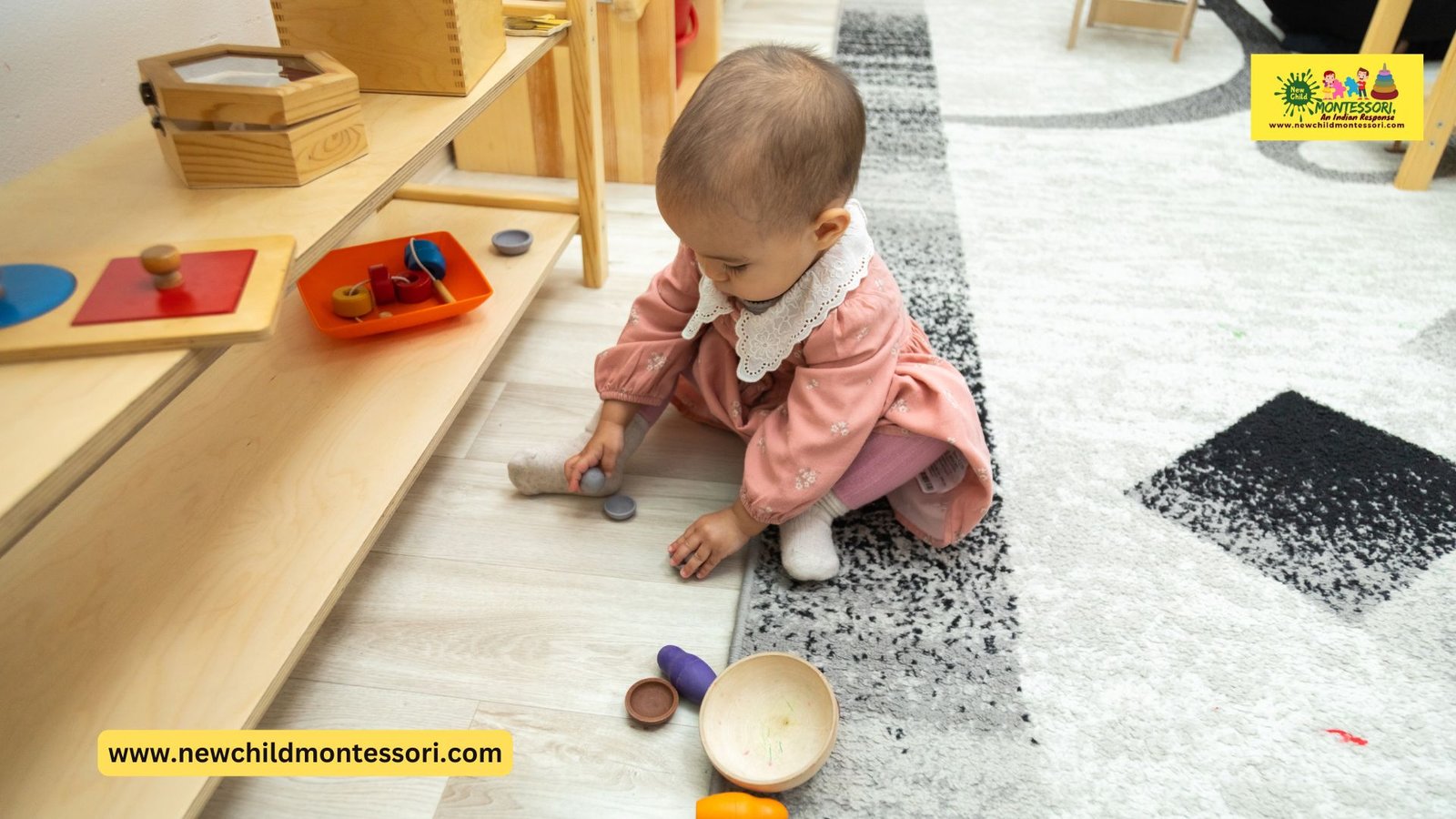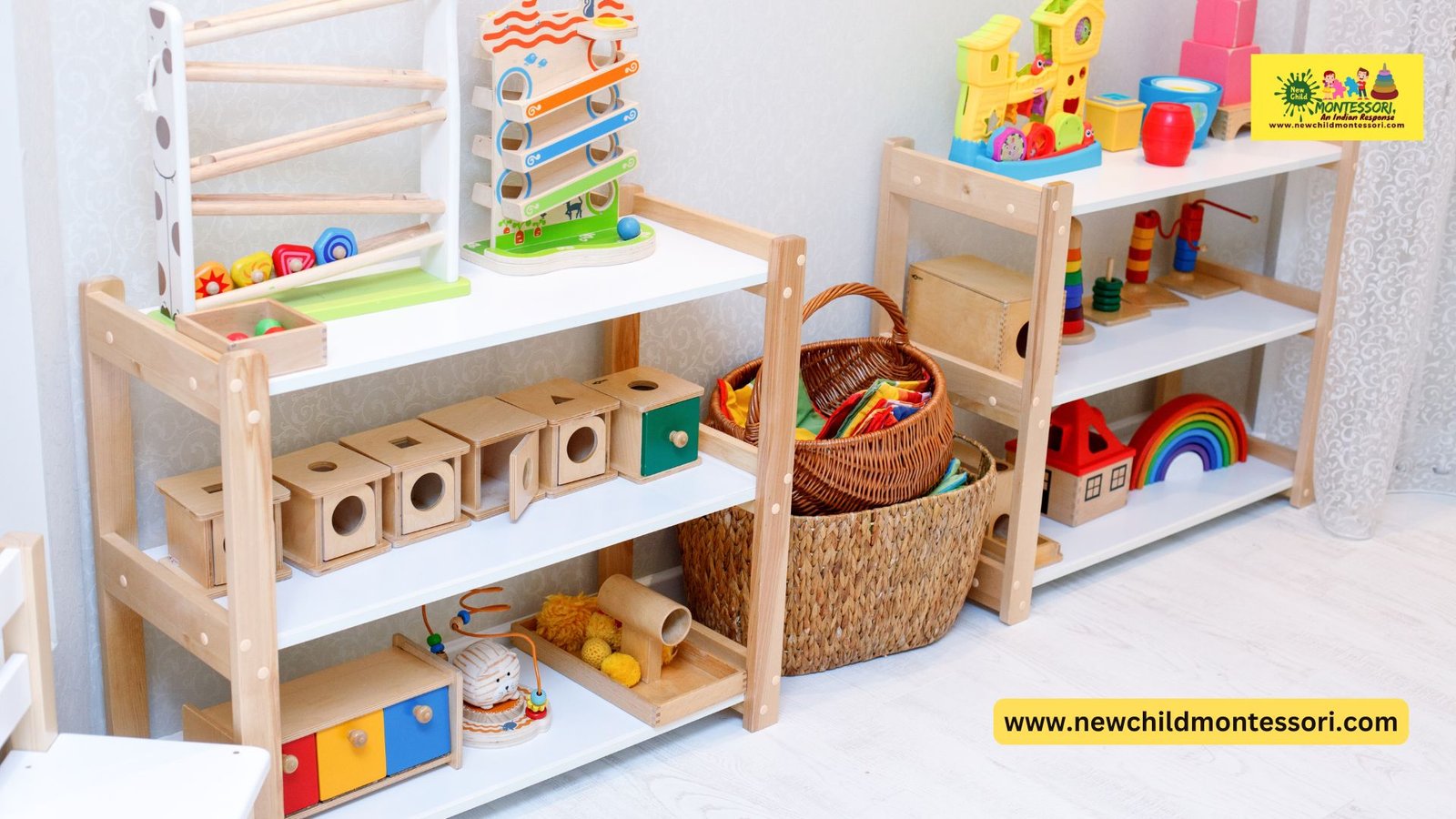Hello, my name is Sumanta De—a Montessori teacher and a busy dad of two little children: Baivab (7) and Munia (5).
Many parents struggle to choose the right parenting philosophy to teach their children at home. Still, my long association with the Montessori philosophy has helped me greatly in choosing an approach that works beautifully for my family.
If you’ve heard the term “Montessori” but aren’t quite sure what it means or why it’s so popular, I’ve been there, too. I’m here to share what I’ve learned and how it’s made my home calmer, happier, and more fulfilling for everyone.
What is Montessori?
Montessori is a time-tested, child-centered educational philosophy. This educational philosophy owes its origin to Dr.Maria Montessori, the first female doctor in Italy. She observed that children learn best through hands-on exploration and independence. In a word, her discovery was revolutionary.
What Does a Montessori Home Look Like?

In one of my blog articles, I talked about “Montessori Homeschooling” which you can read by searching my website. Here I will talk about what a Montessori home looks like:
First of all, a Montessori home is not about spending money on fancy toys, but it is all about creating a child-friendly atmosphere.
Here’s what it looks like:
Prepared Environment: If you organize toys and activities thoughtfully, your child can explore them independently.
- Child-Sized Furniture: Child-sized furniture such as step stools, low hooks, and small tables are required because these things will help them do things by themselves.
- Less is More: Fewer toys = deeper focus. Instead of overwhelm, your child learns to master one skill at a time.
- Practical Life Skills: Children are required to get involved in real-life tasks (from pouring water to helping with snacks) to build self-confidence and responsibility.
- Hands-On Learning: Toys are often made of natural materials like wood or glass — simple, open-ended, and purpose-driven.
- Respect for the Child: You model respectful communication and trust them to make small choices, like picking clothes or snacks within set boundaries.
Role as a Parent:

Montessori parents are neither bosses nor entertainers; they are guides. Their role is to observe their children’s needs and interests.
Why Montessori at Home Matters
Here are just a few long-term benefits of practicing Montessori at home:
- Increased confidence and self-sufficiency
- A deep love for learning and curiosity
- Better focus and concentration
- Respect for self, others, and the environment
- A clear sense of responsibility and contribution
Montessori isn’t about perfection. It’s about intention. You don’t need a perfect setup — just a willingness to follow your child’s lead and empower them to grow with confidence.

Sumanta De is an educator. He has been teaching students for more than 16 years following the principles of Dr.Maria Montessori. He has a 7-year-old son and a 5-year-old daughter.
He is nurturing his children abiding by the principles of Dr.Maria Montessori. His passion for Montessori methods goes beyond the classroom.
Hence, he shares his experiences and insights through a dedicated Montessori blog and a YouTube channel under the name “NewChild Montessori”. He aims to offer valuable guidance to both parents and educators.
Education: M.A. English, Masters in Child Psychology & Bachelor’s Degree in Montessori Teachers Training